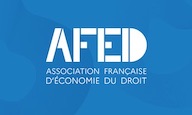The aim of the current work is to approach outer Space as a global commons and to propose strategies for efficient governance. Within this context, the paper analyzes the legal, political, economic and social framework governing Outer Space, assesses the challenges and risks it faces as a common resource and puts forward sustainable management solutions.
Methodologically, the paper employs Historical Comparative Institutional Analysis and draws its perspective from the Socio-Ecological System (SES) and Ostrom's eight Design Principles. The former is used to outline the context and characteristics of the regime, while the latter is employed to assess its quality and sustainability as a commons institution.
This study reveals the characteristics of Space that demonstrate its status as a global common resource, identifies gaps and ambiguities in the current regulatory framework and emphasizes the need to develop a collective governance regime that addresses existing weaknesses and protect the rights of all nations in Space. An important conclusion and suggestion that emerged from this research is the necessity of organizing space participants as a community to collectively manage Space as a common resource. By drawing upon the insights of Eleanor Ostrom's work, these principles can be adapted to the global commons under consideration. Furthermore, valuable research lessons can be derived from the operational framework of the Antarctic governance regime.

 PDF version
PDF version
